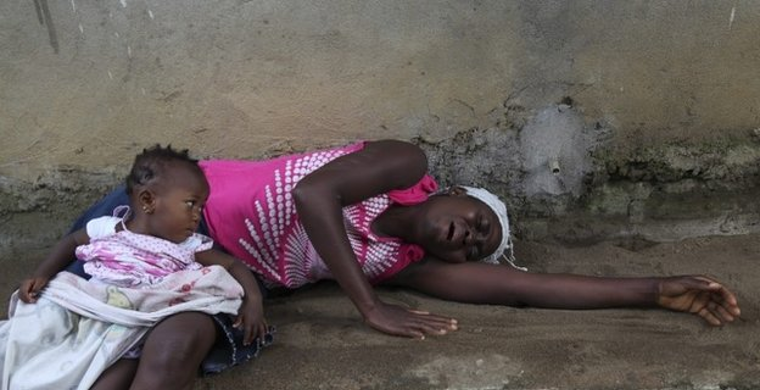Ebola: An African -- Not American -- Issue
By Mike McManus
October 23, 2014
American concerns about Ebola are largely misplaced -- being concerned about whether one case in Texas is causing "an outbreak in the United States."
True, two nurses were infected by Thomas Eric Duncan, a Liberian who came here last month before dying. Both nurses are doing well. And another 43 people who had contact with him were monitored for three weeks -- and emerged with no infection.
However, this issue has dominated the news for weeks despite the fact very few people were involved.
What matters is what is happening to stop Ebola's spread in the three West African countries where 10,000 have already been infected -- Guinea, Liberia and Sierra Leone.
To its great credit, The Washington Post published a Page 1 story that summarized the scale of the problem. Only 18% of infected people are currently in treatment centers. Right now 10,000 to 15,000 need to be treated but there are only 1,000 beds available in those three countries.
By November 10, 45,000 to 50,000 may need to be in treatment centers -- and possibly 100,000 by December 10.
"The speed at which things are moving on the ground -- it's hard for people to get their minds around. People don't understand exponential growth," Tom Frieden, director of the U.S. Centers for Disease Control, told the Post.
He said Ebola could become a global calamity on the scale of HIV.
About 70% of Ebola victims die, and the infection is accelerating. Meltzer produced a report which said that at current rates of infection, as many as 1.4 million might be infected by January. These numbers may be exaggerated, but warn the scale of the issue could be immense.
There is some good news. First, the U.S. military has pledged to build 17 treatment centers by mid-December. Each would handle about 100 patients. So 1,700 patients will be treated. But there could be 100,000 infected by that time.
Second, the World Health Organization has developed a detailed plan that is based on actual cases identified to date -- 9,936 with 4,877 deaths thus far. WHO notes that 443 health care workers are known to have contracted Ebola and more than half have died.
Third, WHO reported that Ebola is now under control in two neighboring countries: Senegal and Nigeria. And the first-ever UN emergency health mission has been set up to address the unprecedented epidemic. It outlined a 90 day plan to control and reverse the epidemic.
One part of the plan is to create 4,400 beds in 50 Ebola Treatment Units, with a goal of isolating 70% of all cases -- up from 25% at present. However, there is a gap in the availability of foreign medical teams to staff the units.
Do you remember hearing about two American missionaries serving in Liberia who contracted Ebola, and returned home to be treated -- Nancy Writebol and Dr. Kent Brantly? They are Christian heroes, both of whom volunteered to work with Samaritan's Purse, a ministry in North Carolina run by Franklin Graham, son of Billy Graham.
Both have been declared cured of Ebola. Mrs. Writebol helped doctors put on and remove their protective equipment. She nearly died, but now credits her faith for her recovery: "I really believe that God used the doctors, the nurses...all of these things." She hopes her experience brings awareness of the Ebola crisis and will encourage others to help in some way.
Dr. Brantly "intended to be a missionary before he became a doctor," said Kent Smith, an elder at his church in Fort Worth. He took mission trips to Uganda, Honduras, Nicaragua, Tanzinia and Haiti. "Eventually, he decided medical mission is what he wanted to do."
Why would he put his life at risk?
"He would say that he had been called to care for the patents in Liberia," said Dr. Richard Gunderson, his former medical school professor.
In an email from his hospital, Brantly told a fellow doctor that he was "terrified...I'm praying fervently that God will help me survive this disease."
Fortunately his prayers and that of many who heard about him were answered.
However the need in Liberia remains immense.
On October 2, 100 tons of protective equipment and supplies arrived in Liberia on a 747 cargo jet chartered and stocked by Samaritan's Purse.
My hope is that this column will motivate some physicians, nurses and committed Christians like Mrs. Writebol to be heroes to those suffering in West Africa.
To learn more or to offer help go to www.SamaritansPurse.org
Michael J. McManus, President of Marriage Savers and a syndicated columnist














